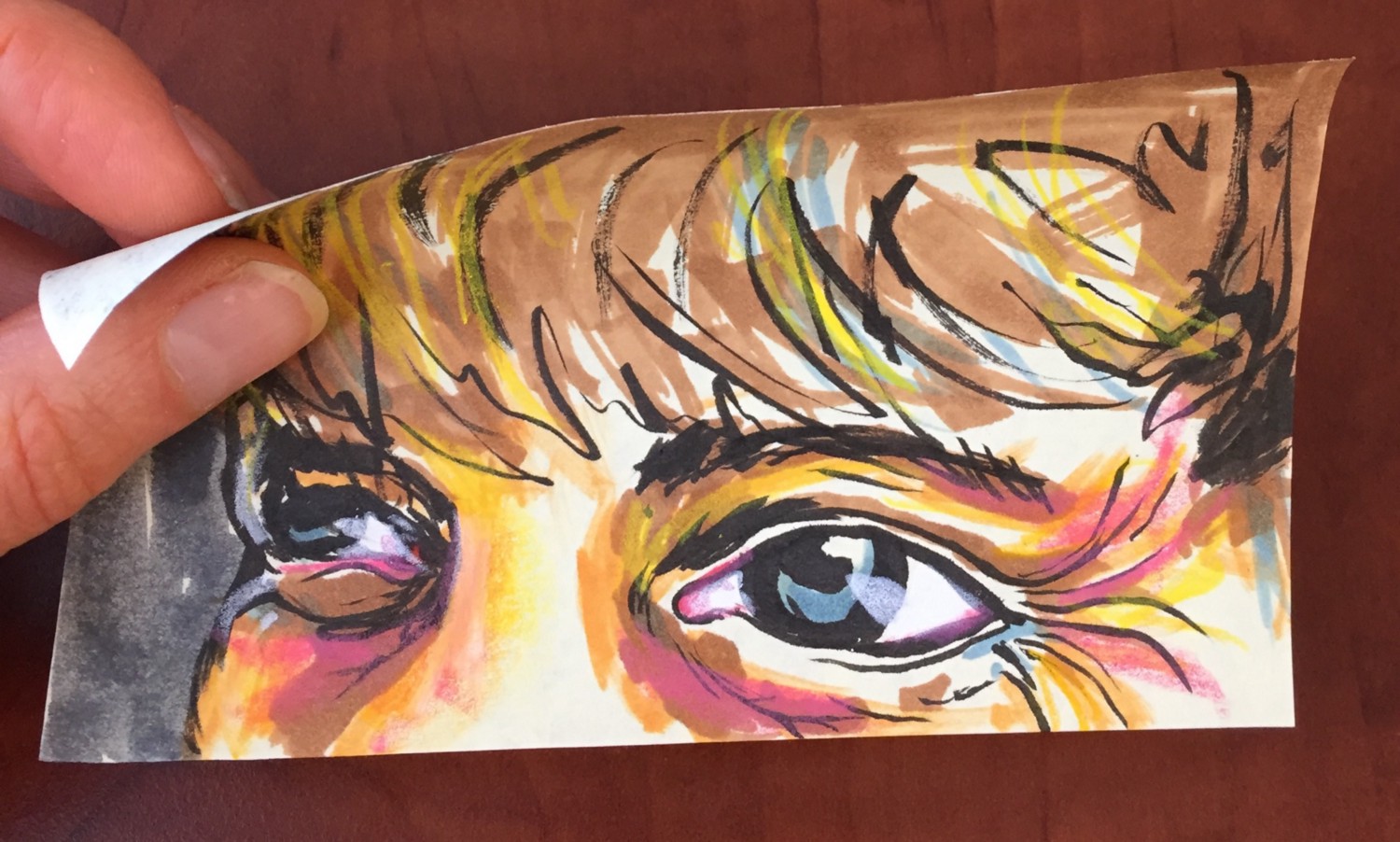Sometimes it feels like the whole world is conspiring against my laugh-lines. The cosmetic industry wants me to smooth them away with lotions and potions. The fast-paced startup culture of the Bay Area where I live wants me to tone down my optimism and positive view — to be more shark-like. The art world wants me to be very serious and high-minded. Academia wants me to speak with big words and maintain an aloof, scholarly persona. Social settings “SHHHHHH!” my loud voice and easy laughter.
But you know what? This optimism was hard-won. My laugh-lines are badges of honor, they are marks of time spent smiling but also time spent with my face-scrunched up in pain or sadness. My loud laughter declares I am comfortable and free to take up some space in the world. I intentionally put a great deal of trust and confidence in my fellow humans. I choose to see their positive attributes or potential because I’ve been in so many situations where the emphasis was doom, gloom, and hopelessness. So no, I don’t want your eye cream. I don’t want to sit down and be quiet. I won’t stifle my laughter and I won’t turn down my volume.

I love my laugh lines. I love your laugh lines. I also love work-worn hands, a stubby pencil, and a car that has seen some rough road. Why do we pretend we’ve all led easy, care-free lives? It is so much more interesting to consider the bumps, the mistakes, and the triumphs. Can we all be a bit more honest about what we’ve been through? Efforts to interact with authenticity can impact our lives and the lives of those around us.
Honesty and openness about difficulties in life help to establish resilience; King, Newman & Luthans (2016) described the importance of creating workplaces that acknowledge “not if, but when” we need resilience.
Honesty in the workplace supports our hearts and our businesses; it is part of establishing a healthy workplace or a healthy community — the environments were we spend so much of our waking life.
So why does our environment matter? The place we spend the majority of our time can be an essential growth-stimulus. Researchers at a New York zoo documented incredible resilience in a crow they assumed was physically incapacitated. When they moved this crow into an enriched enclosure with birds who were able to fly, the resilient crow started exercising and attempting flight; she was able to self-rehabilitate. Like Nugget the Crow, we can thrive, grow, and learn when we are in the right environment and with people who inspire us. Those of us who have been through some stuff in our lives have the opportunity to create environments supportive of others. We can be vulnerable and honest in order to create safe spaces for others. We can disrupt the roles assigned to us in order to make space for others to transcend labels and diagnoses.
So smile: let your laugh ripple across your face. Or furrow your brow and let those creases remind you of the time you’ve been deep in thought or worry. Let’s be a little more authentic in our communities and workplaces; our authenticity just might inspire someone to take flight.
References:
King, Danielle, D., Newman, A., & Luthans, F. (2016). Not if, but when we need resilience in the workplace. Journal of Organizational Behavior, 37, 782–786.
Originally published at medium.com


